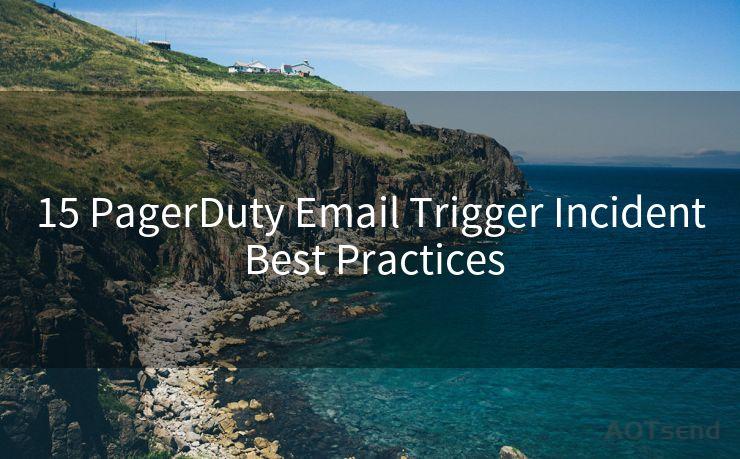15 PagerDuty Email Trigger Incident Best Practices




When it comes to incident response, PagerDuty stands as a critical tool for many organizations. Its email trigger functionality allows teams to quickly respond to critical events. However, to ensure efficient and effective incident management, it's essential to follow best practices. Here are the top 15 best practices for using PagerDuty's email trigger for incident response:
1. Clear and Concise Subject Lines
The subject line of the email trigger should clearly indicate the nature of the incident. This helps the responder quickly understand the urgency and context of the alert.
2. Detailed Incident Description
Include a comprehensive description of the incident in the email body. This should cover what's happening, where it's happening, and any potential impacts.
3. Use of Templates
Create standardized templates for different types of incidents. This ensures consistency in communication and reduces the chance of missing crucial information.
4. Prioritize and Categorize Incidents
Not all incidents are equally critical. Use PagerDuty's prioritization features to categorize incidents based on their severity.
5. Accurate Contact Information
Ensure that all relevant contact information is up to date in PagerDuty. This includes phone numbers, email addresses, and escalation paths.
6. Escalation Policies
Set up clear escalation policies to ensure that if the primary responder is unavailable, the incident is quickly routed to the next available team member.
7. Testing and Validation

Regularly test your email triggers to ensure they are working as expected. Validate the incident response process to identify and address any bottlenecks.
8. Integration with Other Tools
Integrate PagerDuty with other monitoring and alerting tools for a holistic view of your infrastructure's health.
9. Post-Incident Reviews
Conduct post-incident reviews to learn from each event and continuously improve your response processes.
10. Documentation
Maintain detailed documentation on how to use PagerDuty email triggers and the incident response procedures.
11. Training and Awareness
Regularly train your team on using PagerDuty and ensure everyone is familiar with the incident response plan.
12. Avoid Alert Fatigue
Fine-tune your alerting thresholds to reduce false positives and prevent alert fatigue among your team.
13. Leverage Automation
Utilize automation where possible to reduce manual intervention and speed up response times.
14. Secure Communications
Ensure that all communications through PagerDuty are secure, especially when sensitive information is being shared.
15. Continuous Improvement
Regularly review and update your incident response procedures based on feedback and lessons learned.
🔔🔔🔔
【AOTsend Email API】:AOTsend is a Managed Email Service for sending transactional emails. Support Email Types: reminders, authentication, confirmations, notifications, verification codes, invoices, password resets, account activations, billing statements, two-factor authentication (2FA), and one-time passwords (OTP) emails, etc. $0.28 per 1000 Emails. 99% Delivery, 98% Inbox Rate.
You might be interested in:
Why did we start the AOTsend project, Brand Story?
What is a Managed Email API, How it Works?
Best 25+ Email Marketing Platforms (Authority,Keywords&Traffic Comparison)
Best 24+ Email Marketing Service (Price, Pros&Cons Comparison)
Email APIs vs SMTP: How they Works, Any Difference?
By following these best practices, organizations can significantly improve their incident response capabilities using PagerDuty's email trigger functionality. Remember, effective incident response is not just about having the right tools; it's also about having well-defined processes and a well-trained team.




Scan the QR code to access on your mobile device.
Copyright notice: This article is published by AotSend. Reproduction requires attribution.
Article Link:https://www.mailwot.com/p3032.html



